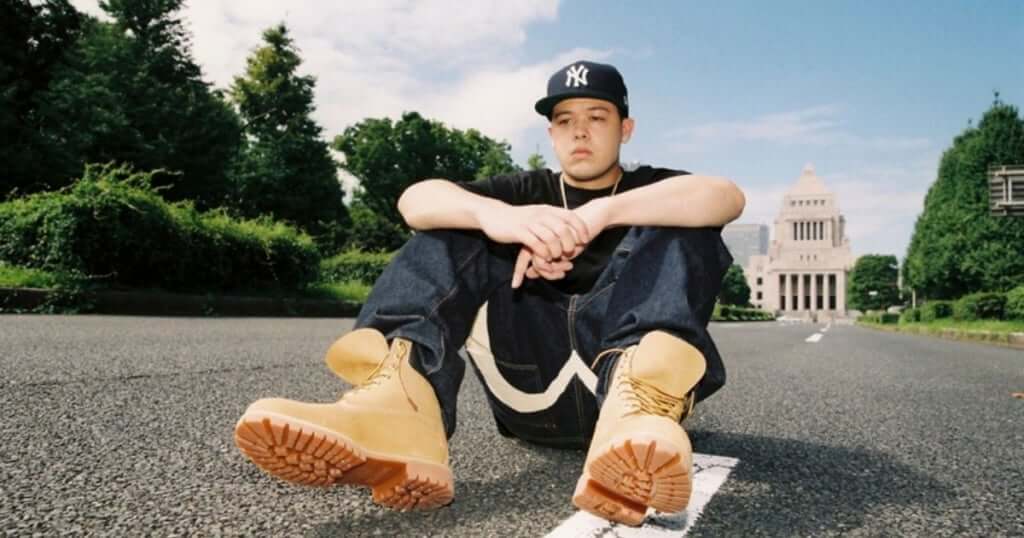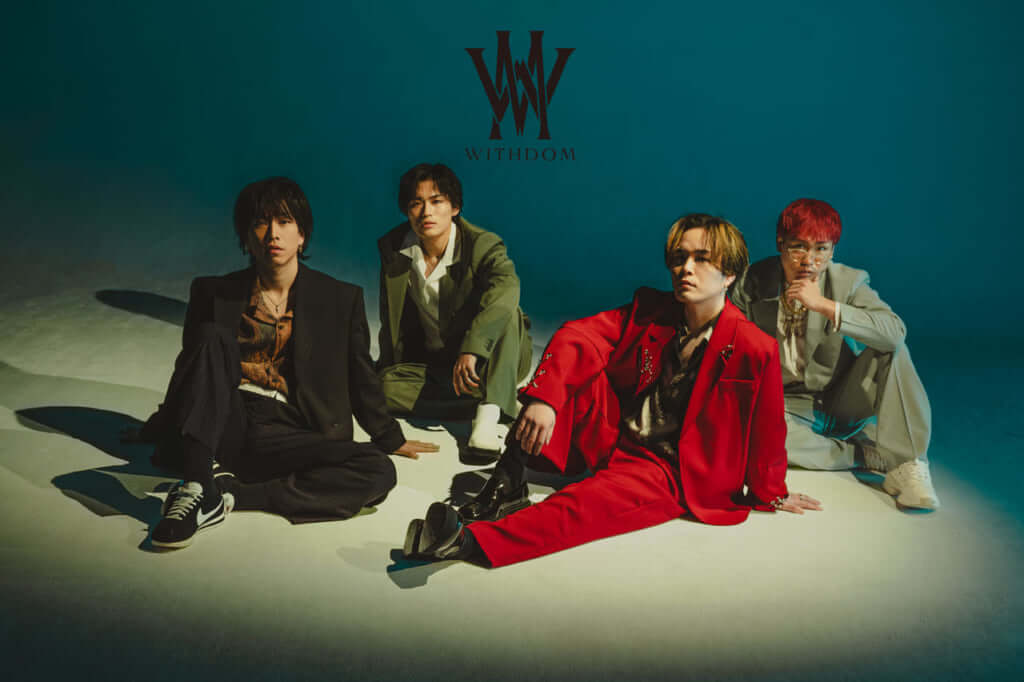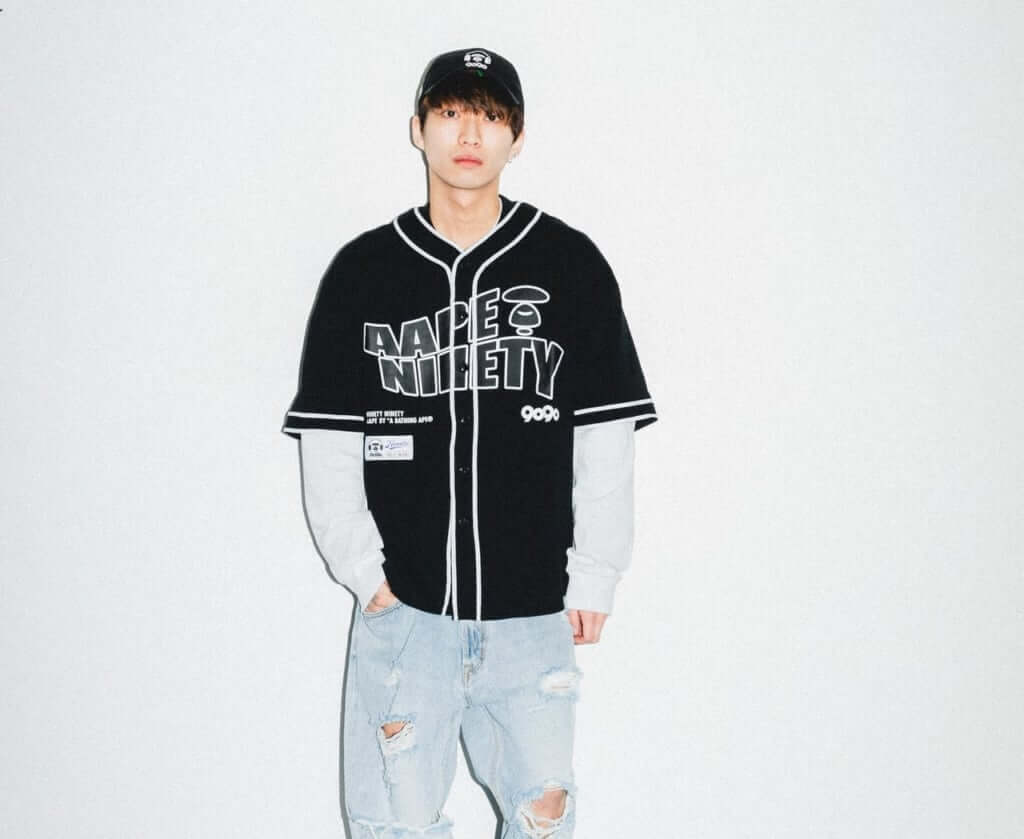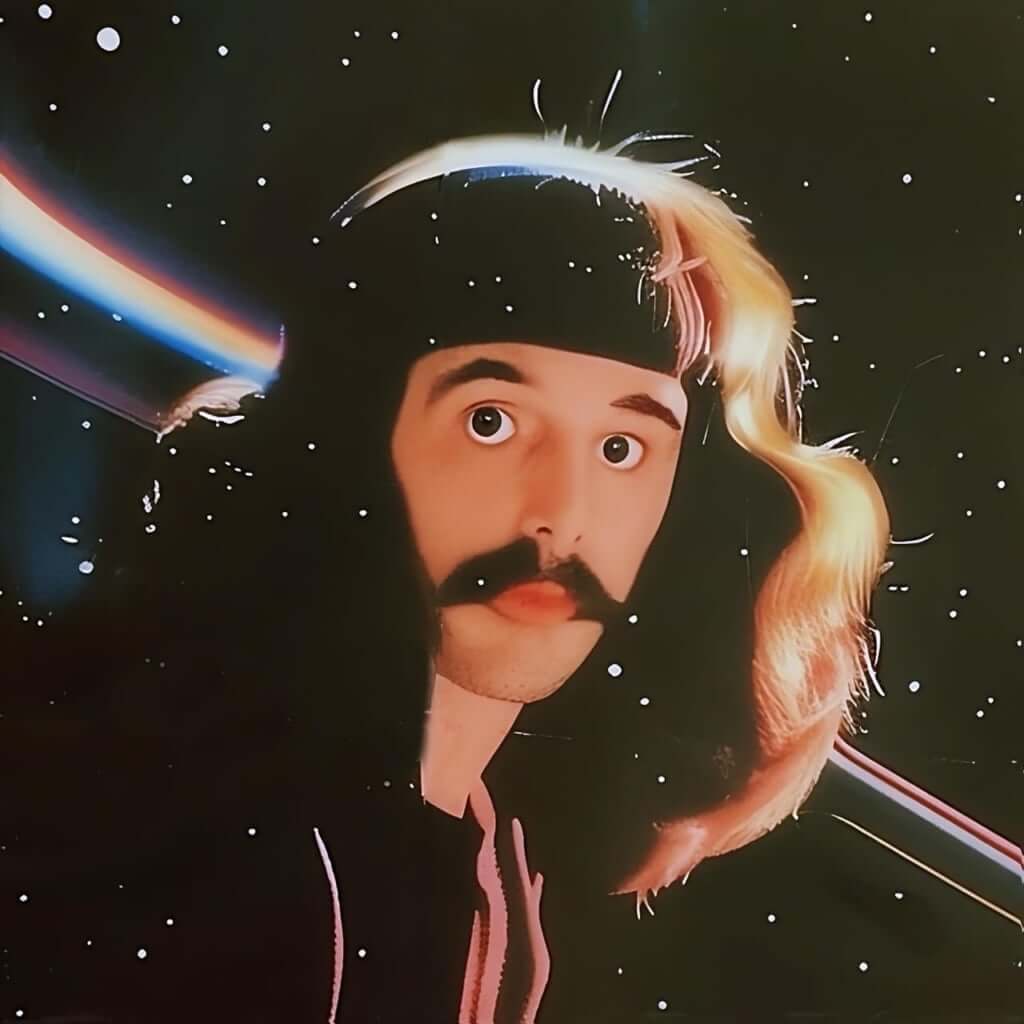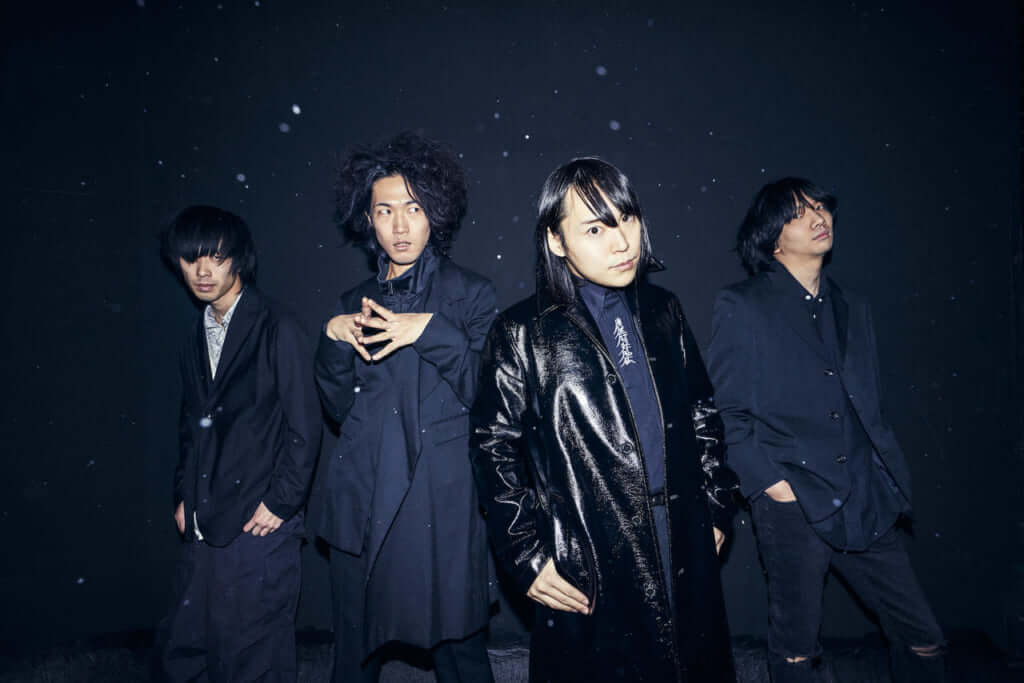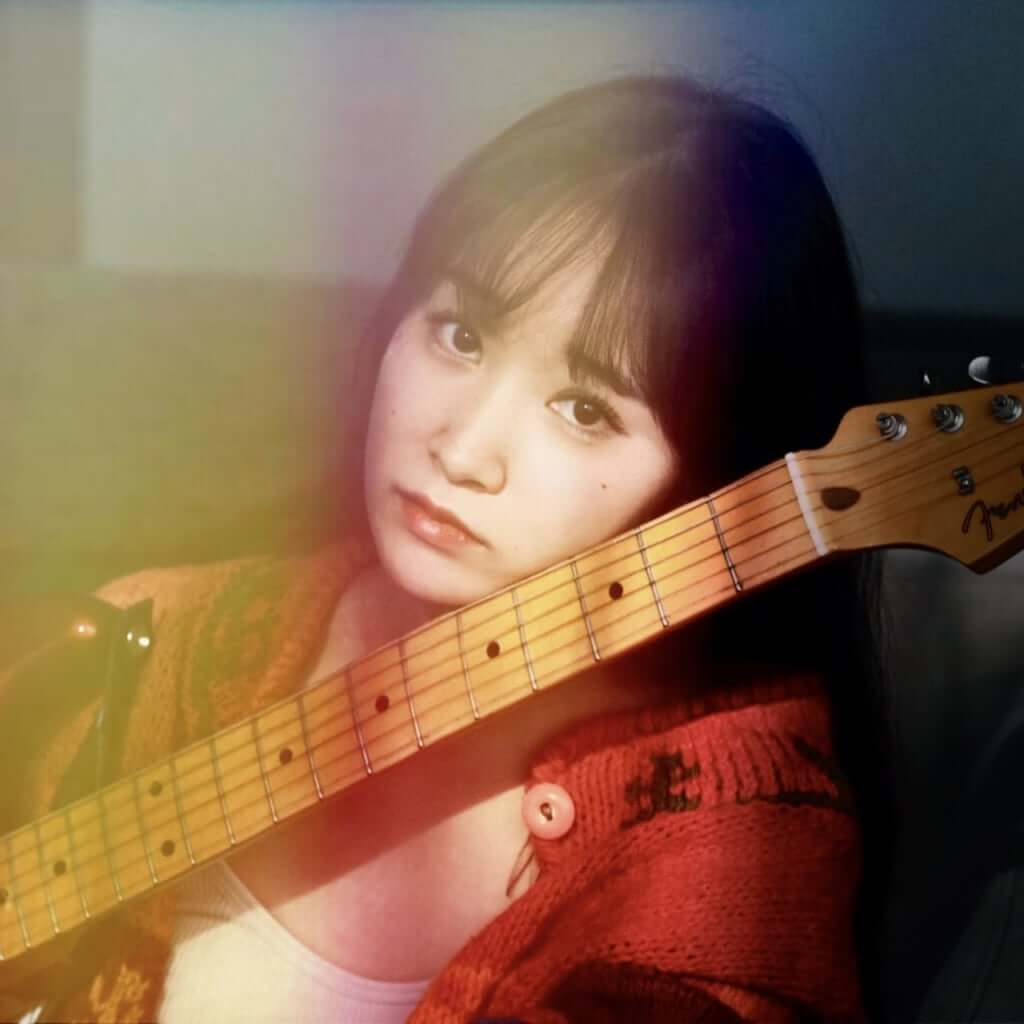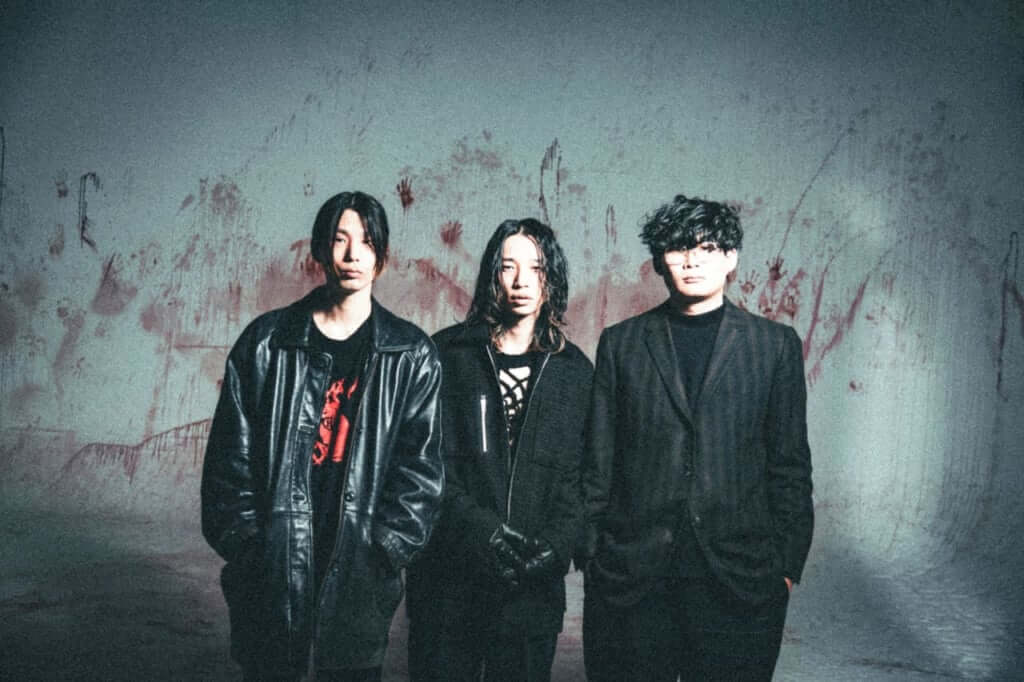2018.8.31
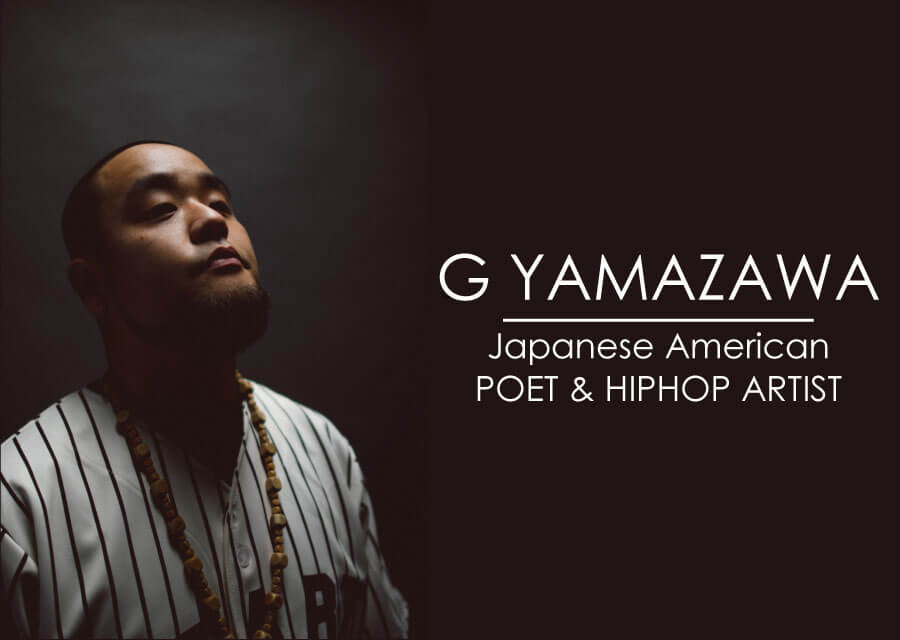
先日8月28日に米国TuneCoreよりシングル『BURI BURI (feat. MIYACHI & Pablo Blasta)』をリリースしたG.YAMAZAWA。ノースカロライナ州ダーハム生まれの日系アメリカ人である"Gヤマ"は、17歳の時にポエトリーの大会に出場したのを機に、世界を代表するポエトリー&ヒップホップ・アーティストへと飛躍。その洗練されたスキルから繰り出される言葉、リリック、表現は、人種・国境の壁を超え聴衆の心に深く響き、現在はUS音楽シーンの最前線で活躍しています。
今回は、そんなGヤマに、国内ではあまり馴染みのないポエトリーのシーンから、アーティストとしてのバックグラウンド、盛り上がりを見せるアジアのヒップホップ、自身のプロモーション方法にいたるまで話をうかがいました。
目次
“Gヤマ”って呼んでいい?
——今回は取材にご対応いただきありがとうございます。まず、なんとお呼びしたらいいですか?
Oss!!「G」かな、最近日本の仲間からは「ヤマちゃん」って呼ばれるようになってるけど(笑)。 母親からは「ジョージ君」って呼ばれる。
——「G」だと、「じーさん」って微妙なニュアンスになってしまいそうなので、「Gヤマ」で、どうでしょうか?
Gヤマ: いいね!「Gヤマ」、ドープな感じ(笑)。
歴史あるポエトリー/スポークンワードのシーン
——今年3月にアメリカ(テキサス)で開催された「SXSW 2018」で、偶然にもGヤマのライブがあることを知り、運良くお話もさせていただきありがとうございました。その時、オーディエンスのほとんどが、Gヤマの詩や歌詞を知ってて、口ずさみながら盛り上がっていたことに正直驚いたんです。 おそらく、10年前だったら、アジア系のアメリカ人、特に日本アイデンティティーのヒップホップアーティストが、現地のアーティストと同じぐらい熱狂的に迎えられるっていうのは、あまり考えられなかったことだと思うんですが、まず、アーティストになったきっかけを教えていただけますか。
あの時は立ち寄ってくれてありがとう。この出会いにも感謝してるよ。僕は常にアートが大好きで、ビジュアルアートやパフォーマンスアートをはじめ、とにかくクリエイティブなものが好きなんだ。小さい頃からアーティストになりたくて、絵を書くところからはじまって、ダンスやって、それから、詞やパフォーマンスにたどり着いた。
ヒップホップは、普通にアメリカの若者の共通言語だから、その若者の一人として自分の気持ちをコミュニケーションするのにライムし始めるっていうのは自然なことなんだ。もちろん偉大なアーティストになるために真剣にスキルを磨いたり努力しているんだけど、今の自分というのはこれまでの人生で経験してきたことの積み重ねの結果だし、それ以上でも以下でもない。アーティストである前に、まず自分は一人の人間だということは忘れないようにしているよ。
——US音楽シーンで有名になった経緯というのは?
有名じゃないよ(笑)。でも、ポエトリー・リーディングやスポークンワードを通して、段々ファンが増えていった感じで、17歳の時にポエトリーの全国大会に出はじめたんだ。それで23歳でUS国内や世界をツアーするようになって、曲をリリースし始めた頃には、世界中にファンがいるようになった。みんなが僕のポエトリーを真剣に受け止めてくれたからこそ、そういう風になれたんだと思うよ。
——Gヤマについて初めて知ったのは、Facebookで誰かがシェアしてた「NORTH CACK」のYouTubeビデオだったんですね。
それで、そこから気になって関連動画をディグったんですけど、その中で「Linsanity」や「Two Tongues」のようなポエトリー動画を見てハマってしまったんですよ。日本にはこういったシーンはあまりないので。ポエトリーのシーンってどういったもので、どれぐらいポピュラーなのか改めて教えていただけますか。
ポエトリーっていうのは、全ての古代文明を見渡しても最も古い口承形式のひとつだよね。だから、それがどういったものなのか、みんななんとなくは分かってるんだけど、普段そんなに使われる場面はなくて。というのも、ポエトリーはなんだかとっつきにくいアカデミックで「高尚なアート」みたいに思われてるでしょ?アメリカのスポークンワードは、そのポエトリーの流れをくんでいるんだけど、1950年代のGil Scott-Heron、Amiri Baraka、The Last PoetsといったBeatnik世代の時に広く普及したラップの元祖の一つとされていて。「Poetry Slam」っていうのはスポークンワードの大会のことなんだけど、そういう大会やオープンマイクが開催されたり、若者世代を育てるための組織だったり、自然発生的なコミュニティは世界中にはたくさんあるんだよ。
アジアン・アーティストの飛躍
——どう思われるか分からないんですけど、ちょっと聞いてみたいことがあって、Asian American Rapperだと、MC JINが106&ParkのFreestyle Fridayで勝ちましよね。Gヤマは、MC JINから影響を受けてたりしますか?
ああ、JIN!(笑)。確かその時僕は11歳ぐらいだったかな。ほんと信じられない光景だったよ。なんか複雑な心境だったね、だって僕がアジアンラッパーとして最初の勝者になりたかったから(笑)。彼がRuff Rydersとサインしたっていうのは確かにスゲぇって思ったけど、「Learn Chinese」がリリースされた時は、なんかこっちが恥ずかしいような気分になったね。でも、彼を責める気はなくて、だってその時はまだ世界的にアジアンラッパーの盛り上がりを受け入れる十分な状況にもなっていなかったから。
——なるほど。では、実際に影響を受けたアーティストというと?
影響を受けたラッパーだと、The Fugees、DMX、Busta Rhymes、Missy Elliott、Slick Rick、Dr. Dre、Jay Z、Nas、Eminem、Outkast、2Pac、The Notorious B.I.G.とかのいわゆるゴールデンエイジなラッパーかな。世代的に、Ludacris、T.I.、The Diplomats、Young Jeezy、Gucci Mane、Lil Wayne、Lupe Fiasco、Kanye Westももちろん大好きだよ。
——この頃はアジアからも世界的なラッパーが多く現れていますよね、例えば、DumbfoundeadやKeith Ape、suboi、Jay Park、Higher Brothers、Rich Chiggaだったり。それについてはどう思っていますか?
彼らはドープだよね!アジアのアーティストは、他の国のアーティスト同じく表現もバックグラウンドも幅広いよ。リリカルなラップ、ギミックの効いたラップ、ストリートなラップ、ダンスやクラブ的なラップ、バトルラップとか色々。大きな盛り上がになっているようだから、世界的なクロスオーバーはどんどん進んでいると思う。 アジアのアーティストは何世代にも渡って、これまでも素晴らしい作品を生み出してきたけど、今みたいになる前はメジャーレーベルはそんなにお金になるとは思っていなかったんだろうね。
MVは自分の音楽に新しい息吹をもたらしてくれる
——次に、プロモーションについてお伺いしたいのですが、今はレーベルと契約しているのですか?それともインディペンデントで自分のチームで動いているのですか?日本では、活動を広げるためにメジャーレーベルとの契約を望むアーティストが多くいます。
僕は未だにインディペンデントだし、特にレーベルとは契約していないよ。オフォーもこれまでなかったし(笑)。自分や自分についている弁護士にとってディールの内容が良さそうなら、メジャーレーベルのリソースというのは自分のやりたい事をかなえるのに、当然かなり役立つとは思う。まぁいずれにせよ「DIY」の姿勢は大事だと思うね。例え誰もサポートしてくれなかったとしても、結局は自分自身を信じ続けなければならないんだから。
——曲を作る毎に、どんなプロモーションをしていますか?
ネットにビデオをアップするだけさ(笑)。ビデオは重要だよ。
——ビデオは誰が手がけているんですか?
嬉しいことに、ここ何年かは色んなディレクターに撮ってもらってるんだ。主なところだと、Saleem Reshamwala, Darrin Bush, and Nimble Foxかな。映像っていうのはマーケティングに重要なだけじゃなくて、アーティストとしてのビジョンを伝えるのにも大切なんだ。自分の音楽に新しい息吹をもたらしてくれるものさ。
日本のアーティストとのコラボレーションは光栄
——そして、新曲「BURI BURI」を聴かせていただいたのですが、日本語でラップするというのはGヤマにとって新しいチャレンジですよね。TuneCore USから配信してもらえるということ、そしてTuneCore Japanを使っている日本のラッパーPablo Blastaと共作しているというのも、嬉しい驚きでした。どうして日本のアーティストと曲を作ろうと思ったのですか?作る時はこれまでと勝手が違ったりしましたか?
この間日本に行って八王子でDJ TICTOCに会ったんだけど、すごいインスパイアされてね。彼がトラックをかけてくれた時、これは日本語でリリックを書くべきだ、挑戦してみようって気付かされたよ。それは、マーケティング的に日本語でやろうっていうよりも、アーティステックに母国語を表現しようっていう素直な試みなんだ。もともとMiyachiとはお互い数少ないジャパニーズアメリカンのMCっていうところで普通につながっていて、Pablo Blastaにも実際2014年に日本で会っていて。彼は僕が会った中で一番ブッ飛んだ日本人MCの一人だね。だから僕は運がいいよ(笑)。彼らとコラボレーションできるのは光栄なことだよ。TuneCoreには感謝だね(笑)。
——興味がある日本のアーティストはいますか?リミックスしてみたかったり、一緒にやってみたいといった?
KOHHと作品ができたらアガるね!(笑)。でも、ただ有名だから一緒にやりたいって訳じゃなくて、自分がそのアーティストのファンであったり、一緒にやることによって自分を次のレベルへ押し上げてくれるようなアーティストとやってみたいと思ってる。
——割と日頃から、色んなサービスを使って新しい音楽やアーティストを見つけようとする方ですか?
そんなに頑張って探す方じゃないよ。今はなんでも動きが早すぎて、キャッチアップする気もあまり起きなくてさ。SNSで偶然知ったり、仲間から教えてもらったり、未だにそういうオールドスクールな感じだね。
——今後の予定などは?
10月5日に2枚目のアルバムをリリースするよ。その後、デビューアルバム『Shouts to Durham』の続編となる作品も予定している。
——今回はありがとうございました。日本に来ることがあったらTuneCoreのオフィスにも遊びにきてくださいね。最後に一言お願いします。
11月には日本に行けると思うから、その時に必ず行きます!The Bridge、Mind Ghetto、DJ Joe Iron、Micro、STUTS、そして、大阪と神戸のファミリーのみんな、感謝してるよ!(笑)Ossss!
G.YAMAZAWA
Official Site
YouTube
Instagram
Facebook
Apple Music
Spotify
[English version]
[English version is below]
——Hi George san. First of all, thank you for giving us the opportunity to interview you. What should we or fans in Japan to call you?
G. YAMAZAWA: Oss!! "G" works, but homies in Japan have started to call me "Yama-chan," haha. My mom calls me "Georgie-kun."
——OK. “G” sounds cool. Among our staff, we are already calling you “G.YAMA”. Japanese people love shortened name and I think it’s more familiar sound for us to remember . What do you think?
G. YAMAZAWA: G Yama is dope haha.
——Well, I’m so glad that we met on SXSW 2018. All the audience were excited during your show and most of your fan knew your line in lyrics and poems. If it was 10 years ago, I guess nobody thought Asian American hiphop artist, especially Japanese American, could go this far (equivalent level of other US artist). Do you know what made you to become an artist, who you are right now?
G. YAMAZAWA: Thank you so much for coming out, I'm glad we met! I've always loved art. Visual arts, performance arts, anything creative. I wanted to be an artist at a young age, and it evolved from visual arts, to dance, then to writing/performing. Hip hop is often the common language of American youth, so I naturally began rhyming as a way to communicate my feelings as a young person. Of course I take the craft very seriously and try to be the greatest artist I can be, but I am who I am because of all the things I've experienced in my life. It's important to remember that I am human, more than anything.
——Can you tell us the story (behind the scene) about how you became famous in the US music scene?
G. YAMAZAWA:I'm not famous! Haha, but I began building an audience through poetry and spoken word. I started competing in national poetry competitions at age 17, and began touring nationally and internationally at age 23. By the time I started releasing music, there was a national audience who was willing to listen. I believe my background in poetry is what makes people take my lyrics seriously.
——I remember the first time I saw you was from the Facebook timeline. I guess someone posted your music video, which was “NORTH CACK”, and started to dig your other videos. As old video I dig, I found your poetry videos like “Linsanity” & “Two Tongues”. We don’t have this type of poetry scene in Japan. I appreciate if you could you tell us about what it is and how popular it is?
G. YAMAZAWA: Well, poetry is the one of the oldest forms of oral tradition across all ancient civilizations. Therefore, everybody is familiar with the concept of poetry, but it's rarely used in common place, because it's been categorized as an exclusive form of "high art" in academia. American spoken word is an undercurrent of poetry and widely considered to be one of the forefathers of rap, popularized by Gil Scott-Heron, Amiri Baraka, The Last Poets, and the Beatnik generation in the 1950's. A poetry slam is a spoken word competition, and there's many grassroots communities across the world that compete, host open mics, and organize programming for youth empowerment.
——I’m not sure if this is a appropriate question to ask you, but if you think about Asian American Rapper, it reminds me of “MC JIN” winning 106 & Park’s Freestyle Friday. Do you think “MC JIN” gave you some influence to you? or is there any other particular artists?
G. YAMAZAWA: JIN! Haha, I think I was like 11 years old when Jin won Freestyle Friday? Man, it was incredible to witness. I loved it and I hated it, I wanted to be the first Asian rapper! It was definitely inspiring especially when he signed with Ruff Ryders, but when he dropped "Learn Chinese," that really was an embarrassing moment. But I don't blame him, I think the world wasn't quite ready for an Asian rapper phenomenon yet. I'm a fan of the golden era of rap like The Fugees, DMX, Busta Rhymes, Missy, Slick Rick, Dre, Jay, Nas, Em, Outkast, Pac and BIG of course. But because of my age I'm also a huge fan of Ludacris, TI, Dipset, Jeezy, Gucci, Wayne, Lupe, Kanye, etc.
——Recently, I see a lot of Asian Hiphop Artist from all over the world, to name a few well-known artist like Dumbfoundead, Keith Ape, suboi, Jay Park, Higher Brothers, Rich Chigga, etc. What do you think or feel about it?
G. YAMAZAWA:I think it's dope! Just like all artists, we have a wide range of voices and backgrounds. Lyrical rap, gimmicky rap, street rap, funny rap, dance/club rap, battle rap, etc. I think the international crossover is taking over because it seems like a bigger phenomenon. There's been generations of Asian artists that have been making incredible art, but I imagine major labels didn't think there was financial incentive until now.
——In Japan, there’s still many artists willing to sign with the major or big labels to become famous. Are you a signed artist or independent artist or work with your own team?
G. YAMAZAWA: I'm still very independent, and haven't signed with a major label because there haven't been any offers, haha. I think if the deal looks good to you and your lawyer, major label resources can of course help promote your vision significantly. I think it's important to have a "do it yourself" attitude no matter what, because you have to continue believing in yourself even if no one else does.
——Whenever your new song is ready to release, how do you promote the song?
G. YAMAZAWA:Just post it on the internet, hah. Videos are key.
——Man, your fans like me definitely need to subscribe your YouTube Channel then! Who does your music video? How important to you to making a music video for the song?
G. YAMAZAWA:Many different directors I've been fortunate to work with over the years. Saleem Reshamwala, Darrin Bush, and Nimble Fox are the main directors I collaborate with. Film is not only important for marketing, it's important in conveying your vision; it gives your music a new life.
——I just saw your new song video “BURI BURI” directed by Darrin Bush! It’s dope and I guess it’s a new “Method” for you to challenge rap in Japanese right? I was also surprised the song is distributed through TuneCore US and featuring with the new generation hiphop artist “Pablo Blasta” who has been using TuneCore Japan from day 1. That’s wassup! What was your motivation to create the song with non-US artist? Did you find any difficuties?
G. YAMAZAWA:I was very inspired by my recent trips to Japan, when I met producer and OG DJ TICTOC in Hachioji. When he played me the track, I knew I had to try to write in Japanese for the first time and challenge myself. It's not a marketing scheme, it's an honest attempt to exercise my native tongue artistically. I naturally connected with Miyachi because he's one of the very few Japanese American emcees out here, and I actually met Blasta when I visited Japan back in 2014. Luckily, he's one of the craziest native Japanese emcees I've ever heard, haha. It's an honor to collaborate with these guys.
——That's cool! I want to hear more of your Japanese lyrics. If you are thinking about to making a song with another Japanese artist, is there any particular artist who you are interested in?
G. YAMAZAWA:Obviously Kohh would be fire haha. But I don't want to work with artists just because they're famous, I like collaborating with artists I'm a fan of, and artists who will push me to raise the bar.
——Do you search new artist or music? If yes, how do you find them? YouTube, Spotify, Apple Music or from your friends, etc?
G. YAMAZAWA:I'm not a big researcher, I lost enthusiasm to keep up with the climate because it's moving too fast. I'm still kinda old school, I'll just come across it naturally on social media or my homie will put me on.
——Could you tell us about your next vision as an artist?
G. YAMAZAWA:I'm releasing my sophomore album on October 5th, and after that I'll be releasing the sequel to my debut album. (Shouts II Durham)
——Thank you. If you have any chance to visit Japan, please drop by our office! If you have a shout out to Japanese fun, please.
G. YAMAZAWA:I'll be there in November, I'll definitely slide through! Shouts to The Bridge, Mind Ghetto, DJ Joe Iron, Micro, STUTS, and all my family in Osaka/Kobe, haha. Ossss!
